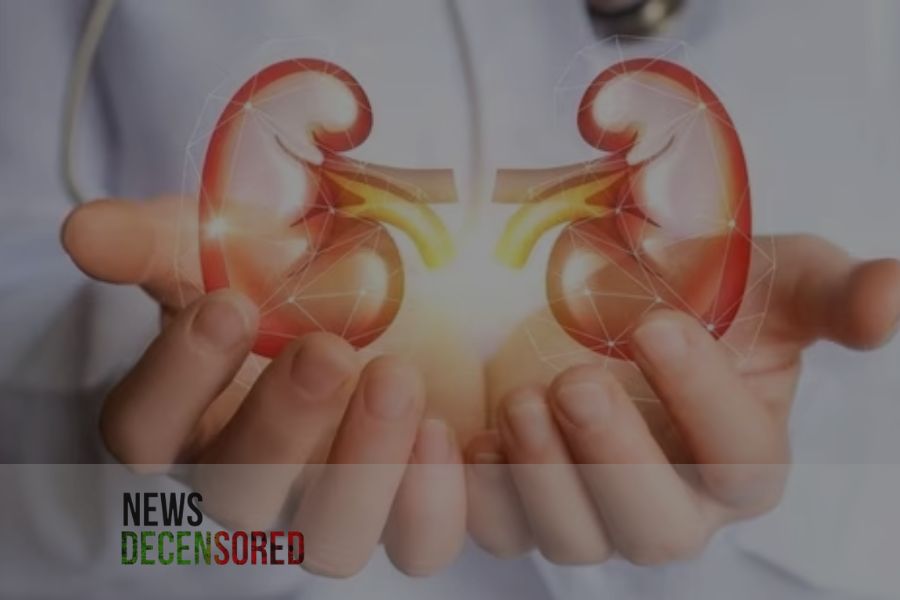According to a recent research paper by the Indian Society of Nephrology, 84 crore people worldwide are affected by various kidney diseases; that is, one out of every ten people in the world has some kind of kidney disease. It should be noted that among the ten causes of death worldwide, kidney diseases are in seventh place.
One of the reasons for the increase in kidney diseases is that these diseases do not seem very serious in the early stages. Milli Mathew, a senior urologist at MGM Healthcare Hospital, says it is only when the disease becomes serious that it is taken more seriously.
That is why it is essential to understand kidney diseases and their symptoms so that a doctor can get help in the early stages of the disease, but before going into these details, know what and how the kidneys work.
What is the function of the kidneys?
Kidneys are one of the most essential parts of the human body, and their primary role is to remove waste from the body through urine. For this function, the kidneys separate material from the blood that is harmful to the human body, including unnecessary minerals, and then the purified blood can circulate in the body.
However, lifestyle, diet, habits, genetic problems, medications, and other health-related problems can disrupt kidney function. Whenever the normal function of the kidneys is disrupted, it is due to some disease, and a significant danger is that the disease is not detected in the early stages. Some symptoms are not even fully apparent.
Chronic kidney disease
Kidney stones are minerals that accumulate in the kidneys and form stones. According to medical experts, after one or two stones are formed, there are no symptoms at first, and no serious problems are encountered. The causes of this problem are drinking less water, obesity, improper diet, and lifestyle. People affected by this disease have difficulty urinating, or there is blood in the urine. A few affected people complain of pain at the site of the kidney stone.
Diabetic kidney disease
According to research, every third person affected by diabetes develops kidney disease, and their kidneys begin to fail. This disease is more common in people whose diabetes is not controlled. Its symptoms include swollen feet, foamy urine, physical fatigue, weight loss, body rash, and nausea.
Hypertensive nephrosclerosis
Apart from diabetes, the disease that affects the kidneys more is high blood pressure, which causes the blood vessels in the kidneys to be damaged, and thus, their normal function is affected. Due to this, the work of cleaning the unnecessary material from the blood cannot be done, and the harmful minerals that are harmful to the body cannot be removed from the blood. Thus, the unnecessary material accumulates in the blood vessels and further increases blood pressure.
Urinary tract infection
Although a urinary tract infection is not a direct kidney disease, it does affect the kidneys. Bacteria can cause this disease, and if the infection is not treated quickly, it can reach the upper part of the urinary tract and damage the kidneys. Symptoms include back pain, fever, painful urination, abdominal pain, blood in the urine, and nausea or vomiting.
Polycystic kidney disease
A tumor causes this disease in the bladder, which grows over time and can cause kidney failure. Genetics also plays a role in its causes. Symptoms of this disease include pain in the upper abdomen, pain on one side of the abdomen, blood in the urine, or recurrent urinary tract infections.
IgA nephropathy
It is a kidney disease that usually starts in childhood and adolescence. Dr Milli Mathew says there is urine with blood in this disease, which can be diagnosed through a test.
Renal failure
In complete renal failure, the kidneys stop working, but people with this disease often experience symptoms late when the disease is usually very advanced. This disease has five stages, and its symptoms do not appear until the fourth stage. The symptoms of this disease appear only when the kidneys have stopped working. Symptoms that occur at this time include loss of appetite, vomiting, severe physical weakness, bloating, and sleeplessness.















